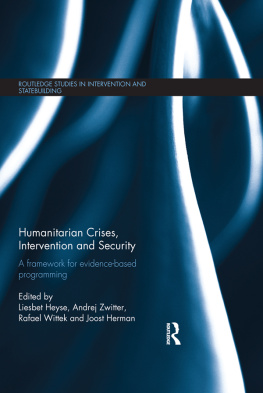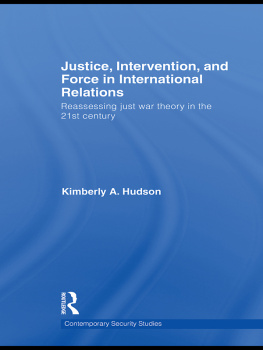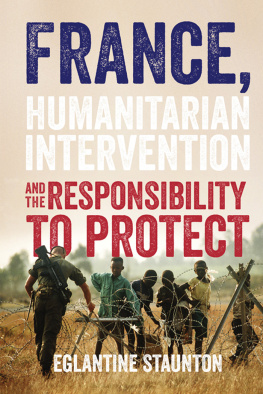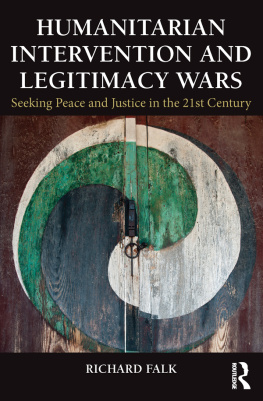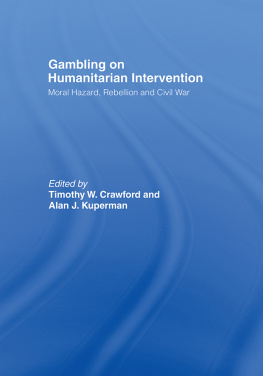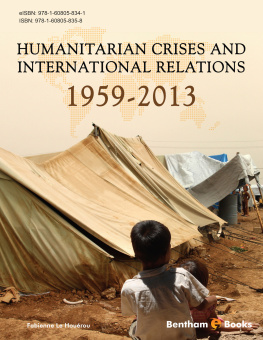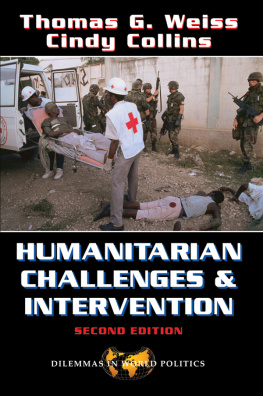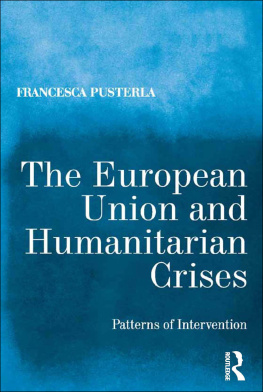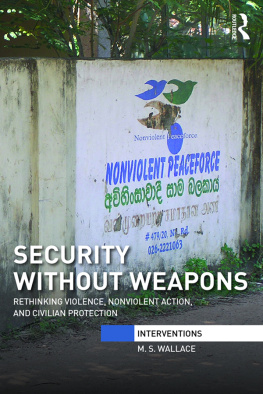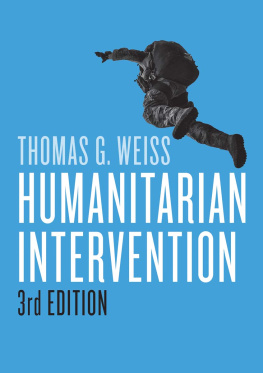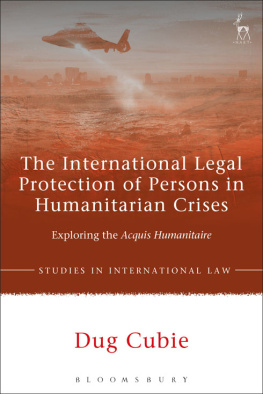Humanitarian Crises, Intervention and Security
This book presents a new framework of analysis to assess natural and man-made disasters and humanitarian crises, and the feasibility of interventions in these complex emergencies.
The past half-century has witnessed a dramatic increase in such crises such as in Haiti, Iraq and Sudan and this volume aims to pioneer a theory-based, interdisciplinary framework that can assist students and practitioners in the field to acquire the skills and expertise necessary for evidence-based decision-making and programming in humanitarian action. It has four major objectives:
to provide a tool for diagnosing and understanding complex emergencies, and build on the concepts of state security and human security to provide a Snap-Shot Analysis of the status quo;
to provide a tool for analyzing the causes of crises as well as the related stakeholder field;
to provide a frame to structure and analyze the information required to evaluate, monitor and/or design interventions for different actors on a project and/or program level;
to combine concepts used in the humanitarian field with underlying theory in a practically relevant way.
The book will be of much interest to students of humanitarian intervention, human security, peacebuilding, development studies, peace studies and IR in general.
Liesbet Heyse is assistant professor in organization sociology at the Department of Sociology/ICS, University of Groningen, the Netherlands. She is author/editor of two books.
Andrej Zwitter is professor of International Relations, University of Groningen, the Netherlands. He is author/editor of three books.
Rafael Wittek is professor of sociology, Department of Sociology, University of Groningen, the Netherlands. He is author/editor of two books.
Joost Herman is professor of globalization studies and humanitarian action, University of Groningen, the Netherlands. He is author/editor of three books.
Routledge Studies in Intervention and Statebuilding
Series Editor: David Chandler
Statebuilding and Intervention
Policies, practices and paradigms
Edited by David Chandler
Reintegration of Armed Groups After Conflict
Politics, violence and transition
Edited by Mats Berdal and David H. Ucko
Security, Development, and the Fragile State
Bridging the gap between theory and policy
David Carment, Stewart Prest, and Yiagadeesen Samy
Kosovo, Intervention and Statebuilding
The international community and the transition to independence
Edited by Aidan Hehir
Critical Perspectives on the Responsibility to Protect
Interrogating theory and practice
Edited by Philip Cunliffe
Statebuilding and Police Reform
The freedom of security
Barry J. Ryan
Violence in Post-Conflict Societies
Remarginalisation, remobilisers and relationships
Anders Themnr
Statebuilding in Afghanistan
Multinational contributions to reconstruction
Edited by Nik Hynek and Pter Marton
The International Community and Statebuilding
Getting its act together?
Edited by Patrice C. McMahon and Jon Western
Statebuilding and State-Formation
The political sociology of intervention
Edited by Berit Bliesemann de Guevara
Political Economy of Statebuilding
Power after peace
Edited by Mats Berdal and Dominik Zaum
New Agendas in Statebuilding
Hybridity, contingency and history
Edited by Robert Egnell and Peter Haldn
Mediation and Liberal Peacebuilding
Peace from the ashes of war?
Edited by Mikael Eriksson and Roland Kosti
Semantics of Statebuilding
Language, meanings and sovereignty
Edited by Nicolas Lemay-Hbert, Nicholas Onuf, Vojin Raki and Petar Bojani
Humanitarian Crises, Intervention and Security
A framework for evidence-based programming
Edited by Liesbet Heyse, Andrej Zwitter, Rafael Wittek and Joost Herman
First published 2015
by Routledge
2 Park Square, Milton Park, Abingdon, Oxon OX14 4RN
and by Routledge
711 Third Avenue, New York, NY 10017
Routledge is an imprint of the Taylor & Francis Group, an informa business
2015 Selection and editorial matter, Liesbet Heyse, Andrej Zwitter, Rafael Wittek and Joost Herman; individual chapters, the contributors
The right of the editors to be identified as the authors of the editorial material, and of the authors for their individual chapters, has been asserted in accordance with sections 77 and 78 of the Copyright, Designs and Patents Act 1988.
All rights reserved. No part of this book may be reprinted or reproduced or utilized in any form or by any electronic, mechanical, or other means, now known or hereafter invented, including photocopying and recording, or in any information storage or retrieval system, without permission in writing from the publishers.
Trademark notice: Product or corporate names may be trademarks or registered trademarks, and are used only for identification and explanation without intent to infringe.
British Library Cataloguing-in-Publication Data
A catalogue record for this book is available from the British Library
Library of Congress Cataloging-in-Publication Data
A catalog record has been requested for this book
ISBN: 978-0-415-83039-3 (hbk)
ISBN: 978-0-203-38153-3 (ebk)
Typeset in Times New Roman
by Wearset Ltd, Boldon, Tyne and Wear
Contributors
Chamutal Afek-Eitam is currently finishing her PhD in organizational change, organizational learning and evaluative practices in humanitarian INGOs at the University of Groningen, the Netherlands. In addition, she is the CEO of the 3 Million Club, as well as co-managing the Humanitarian Genome and an associate trainer at REDR UK.
Rensia R. Bakker (Rene) works at the Institute of Medical Education at the Faculty of Medicine, University of Groningen, the Netherlands. She is coordinator of the Global Health profile in the International Bachelor of Medicine and teaches the Public Health module in the International Master of Humanitarian Action of the Network of Humanitarian Action (NOHA).
Barbara Boudewijnse is an anthroplogist and teaches at the University of Groningen, the Netherlands, in both the faculty of Theology and of Arts. She teaches the Anthropology module at the NOHA Master Program of Humanitarian Action at the University of Groningen, the Netherlands.

